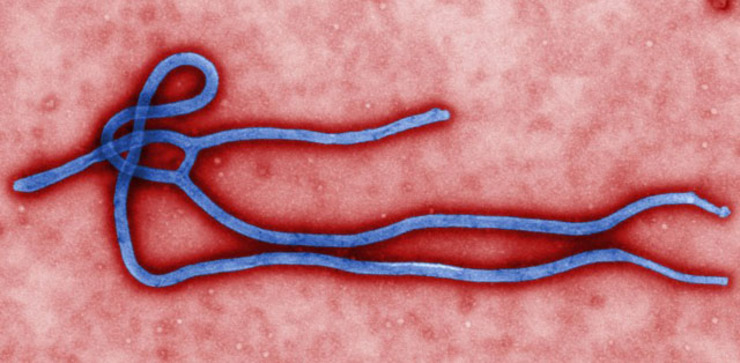SUMMARY
This is AI generated summarization, which may have errors. For context, always refer to the full article.


MANILA, Philippines – A group of private and government hospitals in the Philippines on Wednesday, October 22, admitted they do not have the capability to directly identify the deadly Ebola virus.
“Our laboratories do not have the kit, and we do not have the personal protective equipment (PPE) to protect ourselves should a case be walking through our doors,” Philippine Hospital Association (PHA) President Jaime Almora said during the Senate hearing on the country’s preparations for Ebola cases.
The Ebola virus, which can be transmitted through bodily fluids, causes severe fever, muscle pain, weakness, vomiting, and diarrhea. In some cases, it also causes organ failure and unstoppable bleeding. It can kill victims in just days.
As of October 14, WHO said the 2014 Ebola outbreak has already killed 4,555 out of 9,216 cases mostly in West African countries Guinea, Liberia, and Sierra Leone. (READ: 5 misconceptions about Ebola)
Almora said hospitals under the PHA only have the capability to do the initial screening of patients.
“We are capable of proceeding to the initial isolation. After that, we will be depending on the protocols of referral that should be coming from WHO (World Health Organization) and DOH, and we will be referring to pre-identified centers,” he added.
He asked whether the government can provide the logistics needed for these hospitals.
Health Secretary Enrique Ona, also at the hearing, said the objective is to first identify the major institutions where Ebola patients can be given supportive treatment.
The government has already identified one referral center for every region in the country, while the Research Institute for Tropical Medicine (RITM) was designated as the National Referral Center for Emerging and Re-emerging Infectious Diseases.

FULL COVERAGE: EBOLA CRISIS
RITM will train medical teams from both public and private hospitals starting October 28. For now, Ona said all other hospitals should be aware of the designated referral centers.
“[There must be a] protocol as to where that patient should be isolated right away [in the hospital], while preparing for referral,” the health secretary noted.
But Almora emphasized the importance of every hospital’s capability to diagnose Ebola.
“Ideally, if we have the capability to diagnose them in our hospital, that would shorten the waiting time and the delay of diagnose so management would be started earlier,” he explained.
Senator Teofisto Guingona III, chairman of the Senate Committee on Health and Demography, told Almora the issue is a function of the budget.
“I think what’s important is – given the limitations – the awareness of health workers to detect signs of Ebola,” the chairman of the Senate committee on health and demography added.
Are health workers afraid of Ebola?
Almora also raised the possibility of health workers refusing to report to work once they learn that an Ebola patient is in their hospital.
“We have that possibility. When that happens, we’ll be having a lack of personnel to handle these cases,” he said, adding that the availability of PPEs could ease that fear.
On Tuesday, Ona assured the public that the DOH is already ordering more PPEs to augment the 2000 PPEs it already has in stock. It will be funded from DOH’s disaster budget of P500 million ($11.17 million)*. (READ: WHO: PH is systematic, meticulous about Ebola)
Guingona asked RITM Director Socorro Lupisan and San Lazaro Hospital head Winston Go whether their health workers are confident in treating Ebola patients. (READ: RITM doctors on fear of Ebola: Call of duty comes first)
Go said his health workers are “very willing” to treat possible patients. As for RITM, history dictates the country’s main referral center is more than ready.
“We’ve been through SARS and H1N1. Our workers are very qualified,” Lupisan shared. – Rappler.com
*1 US$ : P44.77
Add a comment
How does this make you feel?










There are no comments yet. Add your comment to start the conversation.